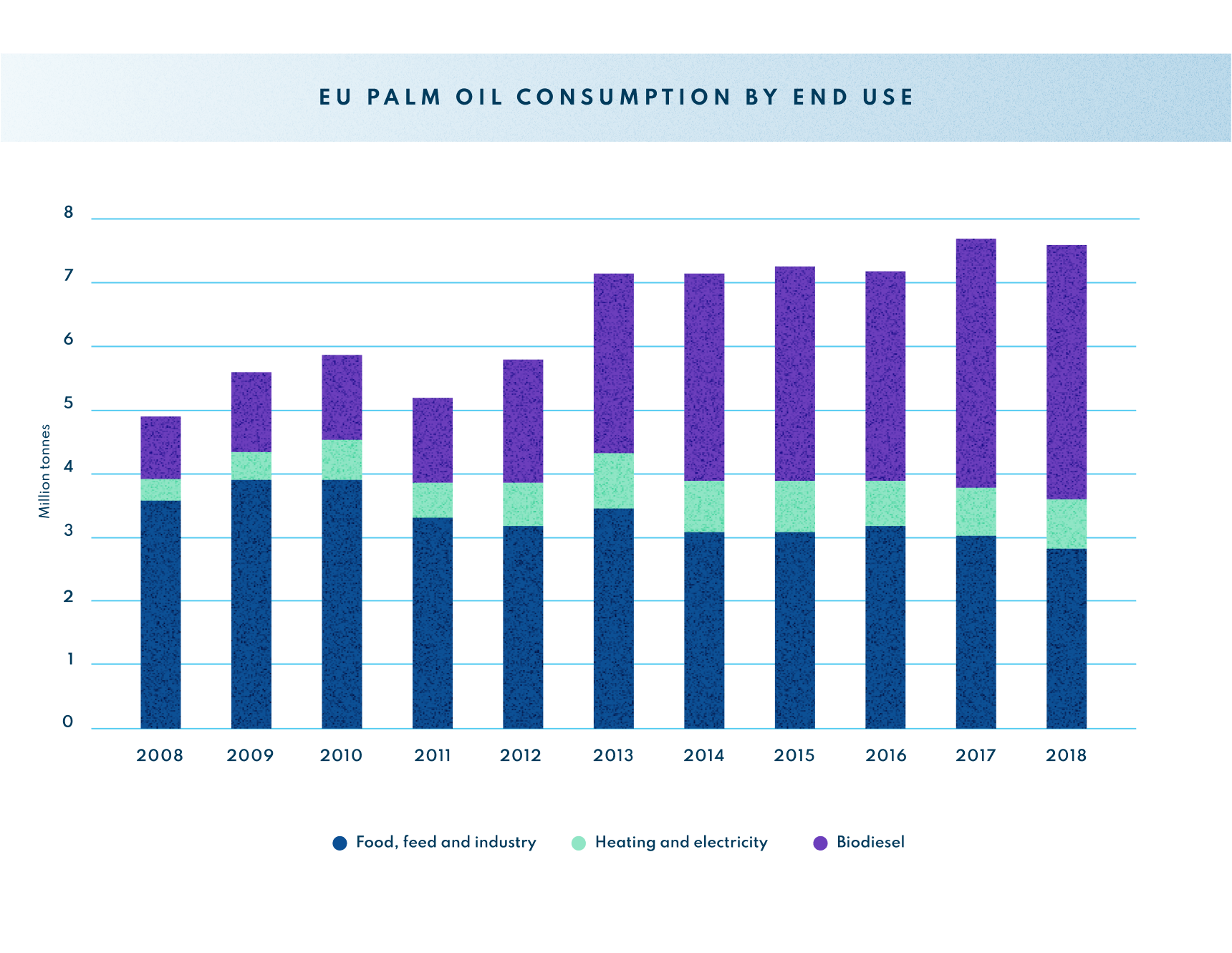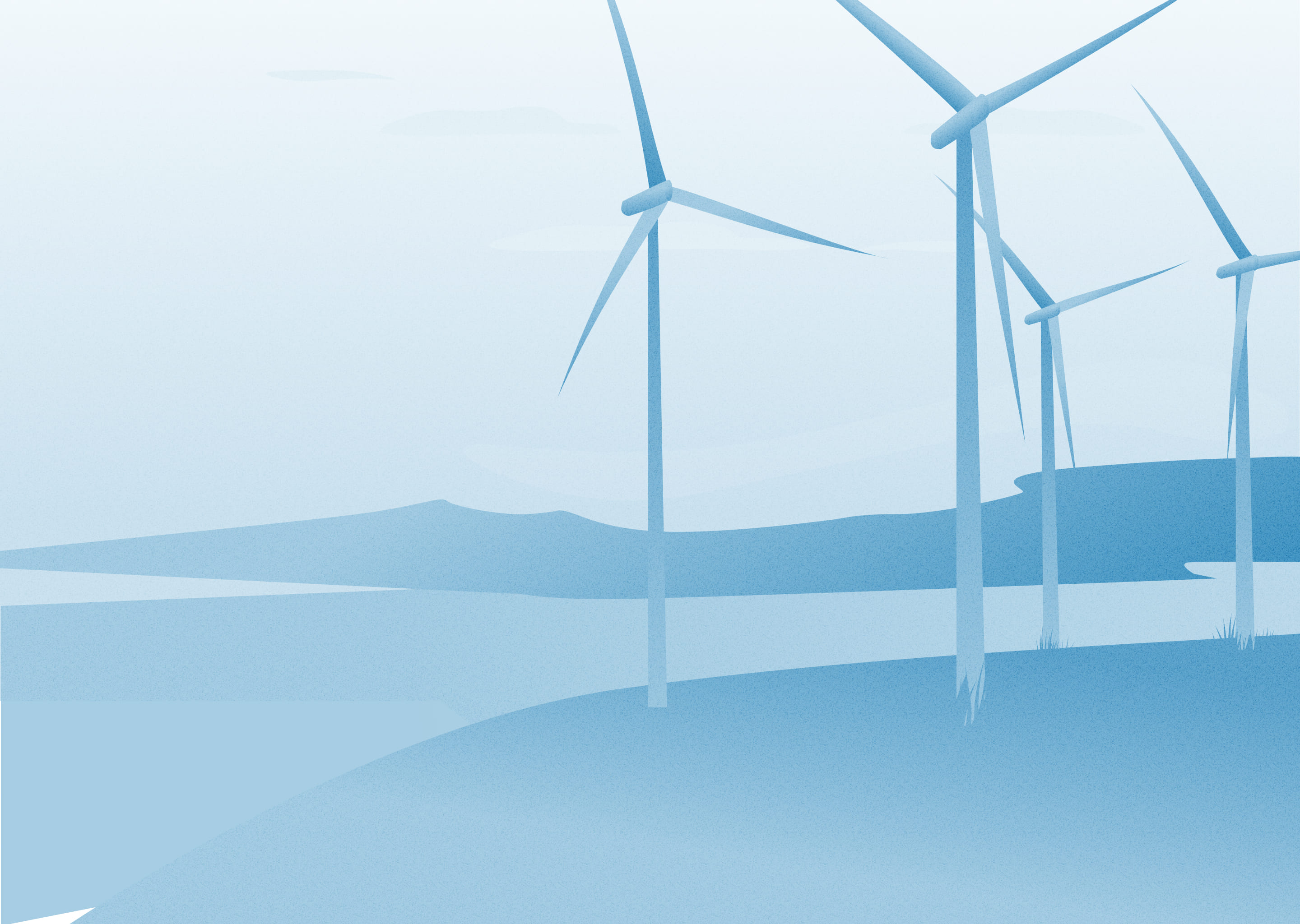After years of dogged campaigning, March 2019 was crunch time. The European Commission had to decide whether it would allow the ruinous use of palm-oil diesel in European cars and trucks to continue. To make sure the Commission would do the right thing, T&E and its network launched its biggest ever public campaign.
We assembled the #NotInMyTank coalition to fight against fake-green palm-oil biodiesel. It included: DUH and Nabu in Germany; Ecologistas en Acciòn in Spain; Friends of the Earth and Canopée in France; Legambiente in Italy; Friends of the Earth in the Netherlands; ZERO in Portugal; the Swedish Society for Nature Conservation; NOAH in Denmark; and CNCD, CETRI, Fian and 11.11.11 in Belgium.
Campaign platforms Sum of Us, WeMove.eu and German change.org also came onboard, and by March 660,000 people had signed a petition telling the Commission they did not want forests destroyed to make fake ‘green’ biofuels. During a four-week public consultation, more than 65,000 ordinary citizens overcame the clunky and unfriendly mechanism set up by the Commission to send a clear message to end the practice.
Our coalition partners also took the fight to the streets. Groups of ‘ape’ protestors descended on EU embassies in European capitals and at the Commission building in Brussels. T&E also echoed the voices of Indonesian indigenous and civil society actors speaking out in defense of phasing out palm oil in biofuels. In an open letter to the European Commission, hundreds of leaders of Indonesian indigenous communities, smallholder organizations, human rights organizations and environmental NGOs warned of the potential environmental and human rights consequences of continued EU support for palm oil-based biofuels.
Imported deforestation
Ahead of the Commission’s decision, we continued to inform the public and decision makers. In January we published a study that found a significant share of palm oil and soybean expansion happens on rainforests, forests, peatland and savannahs - land with high carbon stocks. Based on the most recent available satellite assessments, the report estimated that 31% of palm oil expansion globally takes place on forests, while 23% of the expanded production occurred on peatland (some of which overlapped with forest conversion). At least 7% of global soybean expansion caused direct deforestation in the period 2012 to 2015, the study estimated.
We were also the first to analyse the latest data from OILWORLD, the industry's reference for vegetable oils markets. It showed that almost two-thirds of palm oil consumed in the EU was burned as energy. In 2018, 65% of all the palm oil imported into the EU was used for energy. 53% of all palm imports was used to make biodiesel for cars and trucks - an all-time high - and 12% to generate electricity and heating - another record. Palm oil used for biodiesel grew again in 2018 - by 3% - while the use of palm oil to make food and animal feed dropped significantly, by 11%. T&E said it patently showed that the imported deforestation from consuming palm oil in Europe was mainly driven by the biofuels policy.

Milestone
So, the writing was on the wall for the Commission when it finally decided that palm oil is not a green fuel and should not be promoted because it causes deforestation. The use of palm oil in diesel, which is driven by the EU’s renewable energy targets, would be gradually reduced as of 2023 and should reach zero in 2030, according to its long awaited delegated act, although exemptions remained. T&E had helped Europe reach a milestone in the fight to recognise the climate impact of burning food for energy - though the loopholes meant some palm oil could still be promoted as a “green” road fuel.
"In Italy 95% of biodiesel is produced with palm oil (Transport & Environment data). The European campaign #NotInMyTank launched by a coalition of environmental NGOs asks for the ban on fuels produced with palm oil and stop subsidies from the European Union."
La Repubblica - 21/01/2019
Beyond Brussels, the fight against fake ‘green’ fuels was also raging in national capitals. In Rome, T&E, along with NGOs Legambiente and Movimento Difesa del Cittadino took a case to the Italian Competition Authority against ENI. The oil giant claimed its ‘ENI diesel +’ had positive impacts on the environment and reduced emissions by 40%. For the first time in Italian history, the government watchdog fined Eni with €5 million for greenwashing and misleading consumers.
In France, another energy giant, Total, had its plans to use palm oil challenged. Countering the intensive lobbying of the French oil major was the #NotInMyTank partner, Canopee. The French constitutional council ruled in favour of excluding palm oil from the list of biofuels that enjoy tax incentives. Total had estimated the incentives were worth between €70 million and €80 million a year.
League table
T&E was also concerned at national governments insufficient preparation to meet their decarbonisation targets for transport in 2030 and 2050. In a bid to spark debate at national level, we analysed and ranked the 28 draft national energy and climate plans. It showed that every country’s climate measures for transport would fail to meet their own 2030 emissions targets. All countries would need to implement far more effective policies than had been proposed to date, T&E warned.
We also urged member states to support renewable electricity to move away from food-based biofuels. Most EU states have not incentivised the use of electricity in the same way they do with biofuels. But the revised renewable Energy Directive provides the opportunity to use renewable electricity to reach the EU target for renewable advanced fuels. T&E published a paper looking at how crediting systems in California and the Netherlands give fuel suppliers more options beyond biofuels to meet the targets, and how this could generate revenues to help finance a sustainable transition to electromobility.



